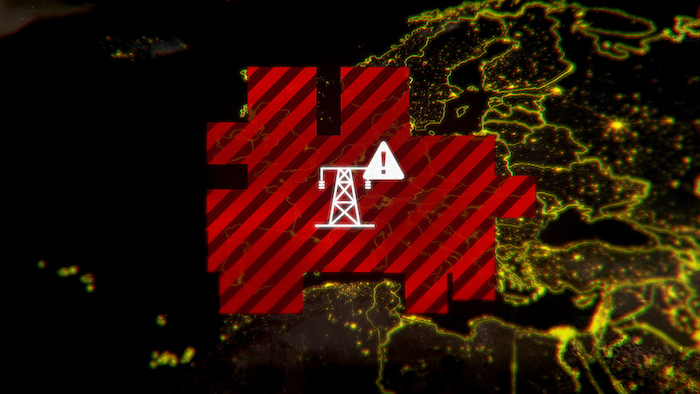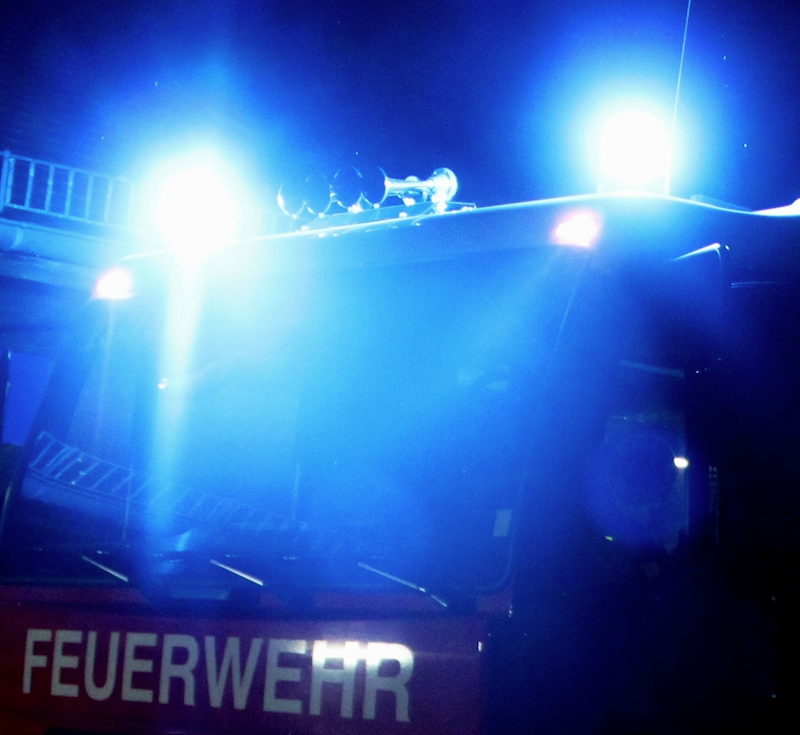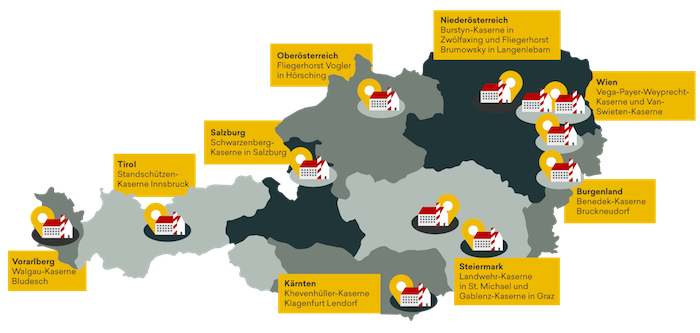Get the weekly SPARTANAT newsletter.
Your bonus: the free E-Book from SPARTANAT.

BLACKOUT (1): It will be very difficult to maintain control
Evi Pohl-Iser faced a blackout crisis affecting 2,000 employees of Vienna Aid Agency. Government officials acknowledge lack of resources and preparation for such scenarios. Civil society and organizations like Red Cross are better equipped to handle emergencies.
Evi Pohl-Iser will not quickly forget her personal blackout experience from July 31, 2018. "With the power outage, the mobile network also went out immediately," she recalls to ADDENDUM. What sounds like the luxury problem of a fully networked city dweller was actually very dangerous. Pohl-Iser heads the "Help and Care at Home" department at the Vienna Aid Agency, based in the Neubau district, where all data for her mobile team converges in real time. In total, she coordinates 2,000 employees, both paid and volunteers.
On that Tuesday afternoon in midsummer, with temperatures exceeding 30 degrees Celsius, it wasn't just the people in the cafes of Vienna's chic city center that were sweating. Pohl-Iser and her team were hot for other reasons. Large parts of Neubau were without power for several hours due to a cable defect. And therefore without mobile data network. However, this is essential for communication and data exchange with the caregivers out with the people. Sick people. People in need of help.
"Access to many of them was no longer possible, because without power, the door openers for the entrance doors no longer worked," she describes the situation at that time. For a health care provider like the Aid Agency, this was a nightmare. "The elevators were also out of service." And perhaps the worst: "The care instructions with medication dosages, which are played via mobile network from the headquarters to the mobile tablets of the staff, were no longer accessible." For example? "Life-saving and life-sustaining activities such as measuring and administering insulin. Fluid and food intake. Incontinence care. Medication administration."
What the Vienna Aid Agency and a few thousand residents experienced in the summer in Vienna-Neubau was just a small preview of what happens when the power goes out over larger areas for an extended period of time. In a province, in a country, across Europe. In short: during a so-called blackout.
According to experts, a blackout is one of the most likely catastrophic events to occur, as can be read in several studies. For example, from Austria. Or from Switzerland. Why, in a crisis, you shouldn't expect too much help from the government as a citizen, and where it might still work, read in the following three chapters.
 I. Deep Divide Between Theory and Practice
I. Deep Divide Between Theory and Practice
During our research trip through the institutions, we experienced some astonishing things. Decision-makers and officials, who appeared in front of the camera, always emphasized the exemplary preparation and the existence of crisis plans for a blackout scenario. However, when the camera wasn't rolling, many answers changed.
The deepest divide, in terms of content and not physical distance, was between the government district in Vienna's city center and the baroque Schloss Laudon in Hadersdorf on the outskirts.
In the Ministry of the Interior in the city center, we visited Johann Bezdeka, the official responsible for civil and disaster management, in his office. In the old water castle, however, we met with a hundred experts from ministries, authorities, and emergency organizations as part of a conference. While Bezdeka, the senior police officer, explained to us in front of the camera that Austria was "very, very well prepared" in terms of blackout preparations, it sounded very different at Schloss Laudon.
Between the "Sisi" and "Petersburg" rooms, representatives from the police, military, health institutions, government agencies, federal states, and more met at the beginning of September. They spoke openly under the Chatham House Rule. This rule allows for open discussion without consideration for public relations or political sensitivities. During breaks, there was goulash and sausages from the Red Cross. And indeed, the participants spoke openly. Very openly.
One of the representatives from the Armed Forces summed up Austria's problem in regards to a blackout on stage: "We are doing well in terms of planning, but we lack the resources in practice." This touched on a central problem.
Disaster preparedness in Austria involves many participants: according to the Constitution, it is the responsibility of the states, which trigger a chain of command down to district offices and municipalities. The federal government, i.e., the Ministry of the Interior, only plays a coordinating role.
In the event of a blackout, which, by definition, occurs on a regional scale, the state tries to deal with the situation using a series of cascading disaster plans. States, districts, municipalities, and all kinds of emergency organizations have their own plans. Theoretically, this is good, but in practice, they all have a central weakness: they only work as long as communication between all parties works. And, as we remember from the descriptions of Evi Pohl-Iser from the Vienna Aid Agency, communication often fails first.
Weaknesses in Government Communication
The emergency preparedness of Austria for a blackout is precisely regulated in theory and on paper. But, as representatives from governmental and civil society sectors criticized at the expert conference at Schloss Laudon, it is not prepared for it in practice. Scenarios where communication is affected, such as offline scenarios, are hardly considered in crisis plans and are not practiced.
Or, as multiple high-ranking representatives of the Armed Forces confirmed during the research, there are no resources for it. However, the key infrastructure is not only the mobile network, which is particularly vulnerable during power outages. The digital government communication network, to which all emergency organizations are connected in addition to the police, also has its weaknesses. Here's why:
The central switching center, located in the south of Vienna, has a battery pack for emergencies that, according to our research, is supposed to last just 24 hours according to the plan. Allegedly, this has never been tested. However, this information is officially unconfirmed, as is the durability of the countless transmission stations all over the country.
According to information from different authorities, these stations are supposed to function on battery power for between 24 and 72 hours. After that, a visit from the fire department with a backup power generator is necessary for continued operation. This is an effort that cannot be managed nationwide.
When all else fails, government communication devices, unlike smartphones, can communicate directly with each other within their own range without a base station. However, the batteries only last a few hours, and very few police stations have their own backup power supply, for instance for charging.
An alternative, the so-called State Basic Network, which operated completely independently - and therefore also independent of public power supply - has not been operational since 2001. Wolfgang Lehner and Sandra Haas from the commercial crisis consultant EMERISIS view Austria's preparations for a blackout critically. They say: "Austria is rather poorly prepared."
II. Military and Police: Partially Operational
"The blackout scenario is underestimated. It will be very difficult to maintain control," Peter Goldgruber, Secretary General of the Ministry of the Interior, assesses the crisis resistance of the police as poor. The 57-year-old is one of the very few government officials who officially acknowledge problems. He explained to us on camera the issues he sees:
Apparently, the weak crisis resistance of the police force, which would be crucial for maintaining public order during chaotic days of a blackout, has not changed. Four years ago, one of our reporters - then working for Die Presse - spoke with the head of the Security Policy Department at the Ministry of the Interior, Kurt Hager. He said: "The police force has become fair-weather organization over the past 25 years."
In fact, the police force lacks significant food reserves for crisis situations, backup power generators, or even fuel reserves. If the power outage affects gas stations, patrol cars, if diesel-powered, have to go through a relatively cumbersome process to refuel at highway maintenance depots of Asfinag. This is because they are self-sufficient. The corresponding contract states, however, that Asfinag's own needs must be met first. In a crisis, the police force must wait. The last state institution left is the military.
Austrian Armed Forces: Helping Where Others Cannot?
Indeed, the Austrian Armed Forces once advertised themselves with the not uncharming slogan "Helping Where Others Cannot." But can the military also be that "strategic reserve" it is supposed to be in accordance with the Republic's defense strategy (Defense Act, § 2 d) Disaster Relief)? And has been in the form of assistance in countless other operations in the past? The impression we gathered during our research is: rather no.
There are several reasons for this finding:
- Inadequate Fuel Supply: Without fuel, the country doesn't function. However, when the power goes out, gas stations also don't work. Very few public gas stations currently have their own backup power. The same goes for most military fueling stations, according to our information. With the few hand pumps available, the Armed Forces can't realistically supply themselves or the cooperating partner, the police, with fuel during a blackout lasting several days.
- Lack of Water Supply: Water is essential in many ways. For drinking purposes and for operating sanitary facilities and sewage systems, think: disease prevention. Studies show that only eleven to 26 percent of Austrians have water supplies for crisis situations. The Austrian Armed Forces have - almost - none. Although some barracks once had their own wells, these facilities have since been abandoned.
- No Food Reserves: The Civil Defense Association and the federal government recommend that the population should have a food supply for a period of two weeks in a crisis. The Armed Forces themselves cannot meet this requirement. In the past, the military had reserves of durable food which were replenished through continuous consumption during exercises - participants may still remember the field rations, Kaltverpflegung (KV). Today, this is a thing of the past, as is the self-sufficient provision of soldiers by the respective barracks' kitchens. The nearly 60 Army locations are now supplied from only four central kitchens. This is certainly not an advantage in crisis situations.
The Austrian Armed Forces are aware of their weaknesses in terms of functioning autonomously. This is why the generals succeeded in negotiations for the current government program to push through two crucial demands: 1.) Strengthening the general autonomy of barracks. 2.) Expanding certain barracks into so-called "security islands," which would significantly increase regional resilience in crisis situations like a blackout. In total, there are twelve locations in Austria falling under this category (see the following graphic).
 That is the plan, at least. Out in the field, as soldiers like to call the less well-planned reality, things apparently don't look as nice. This might explain why questions about the design, performance, and utility of security islands for the population and the military in a blackout scenario remain unanswered.
That is the plan, at least. Out in the field, as soldiers like to call the less well-planned reality, things apparently don't look as nice. This might explain why questions about the design, performance, and utility of security islands for the population and the military in a blackout scenario remain unanswered.
This applied to the parliamentary inquiries by SPÖ Member of Parliament Rudolf Plessl and NEOS Member of Parliament Douglas Hoyos-Trauttmansdorff, as well as to ours: In all three cases, Defense Minister Mario Kunasek argued that public answering would reveal the readiness of the Austrian Armed Forces, and information regarding this fell into the category of military secrets.
We had the same experience with the top leader of the Reserve Army, Raiffeisen Lower Austria-Vienna chief, Major General and Reserve Commander Erwin Hameseder. He declined to comment on our questions about a blackout on the sidelines of the annual security summit of the "Safe Austria Committee." Also, the Army Staff was unwilling to respond to our queries on the performance of safety islands - at least in writing.
However, we were received by Johann Luif, Lieutenant General and Head of the General Staff Directorate, at the Ministry of Defense. The Burgenland native is one of the highest-ranking military officials in the country. In his office at the impressive Rossauer Barracks in Vienna, he essentially attributed the underfunding of the Armed Forces to its weaknesses. And quite clearly, he urged the population to look out for themselves in the event of a blackout rather than expecting help because: "Savings are at the expense of the military's resilience." And further: "The garrisons of the Armed Forces cannot ensure the supply of 8.9 million Austrians."
III. Light at the End of the Tunnel
When the state can no longer intervene, the time for individual responsibility and civil society arrives. Austrians, in particular, have quite a bit of experience in this context. During the Cold War, civil defense ideals were at their peak. In some areas, the government even mandated preparedness.
Seven out of nine federal states (with Vienna and Salzburg as exceptions) once required private builders to equip new buildings with shelters to protect the population from radioactive radiation. Protecting against fuel shortages after a blackout apparently has a much lower priority. Thus, the mandatory requirement for backup power generators for gas stations was only a brief topic. The idea was abandoned.
Role Model Red Cross
Despite this, there are people and initiatives that appear to be better prepared for a blackout than the state. Karl-Dieter Brückner, for example, and his employer, the Red Cross. Since 2001, the organization has been establishing bases that would be fully operational and supplied for several days without power. With backup power, fuel, and food reserves. With analog and amateur radio instead of the more sensitive digital government communication network. "The most important thing," says Brückner, the Regional Commander of
SPARTANAT is the online magazine for Military News, Tactical Life, Gear & Reviews.
Send us your news: [email protected]
Ad
similar
Get the weekly SPARTANAT newsletter.
Your bonus: the free E-Book from SPARTANAT.


